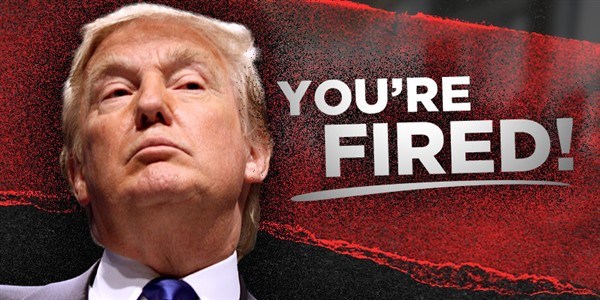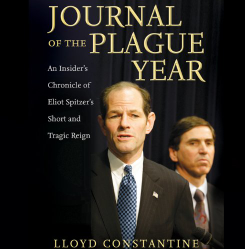The reflexive but understandable assumption is that most of President Trump’s personnel moves involve partially or wholly corrupt motives. However, criticism of his recent firing of United States Attorney Preet Bharara is much ado about nothing. Indeed, most noteworthy in this departure was the posturing of the Manhattan-based head federal prosecutor for the Southern District of New York.
 The U.S. Attorneys, one for each of 94 territories carved by statute, effectively serve at the president’s pleasure. Technically, the Attorney General’s, but we know about Jeff Session’s fierce integrity and independence. Much has been made, but it is of little moment, that Trump changed his mind after earlier asking Bharara to stay in his post. The fact that Bharara was not singled out, but one of 46 U.S. Attorneys simultaneously asked to resign, undercuts assertions that Bharara’s dismissal (after he refused) was a favor to Wall Street executives and/or Rupert Murdoch and Roger Ailes (both former clients of your blogger). Bharara had convened a grand jury to investigate Fox News. That speculative reasoning deeply discounts the presumed opposing Trump desire for Bharara to nail New York City Mayor Bill de Blasio and close former associates of Governor Andrew Cuomo. They currently face investigations and prosecutions initiated by Bharara.
The U.S. Attorneys, one for each of 94 territories carved by statute, effectively serve at the president’s pleasure. Technically, the Attorney General’s, but we know about Jeff Session’s fierce integrity and independence. Much has been made, but it is of little moment, that Trump changed his mind after earlier asking Bharara to stay in his post. The fact that Bharara was not singled out, but one of 46 U.S. Attorneys simultaneously asked to resign, undercuts assertions that Bharara’s dismissal (after he refused) was a favor to Wall Street executives and/or Rupert Murdoch and Roger Ailes (both former clients of your blogger). Bharara had convened a grand jury to investigate Fox News. That speculative reasoning deeply discounts the presumed opposing Trump desire for Bharara to nail New York City Mayor Bill de Blasio and close former associates of Governor Andrew Cuomo. They currently face investigations and prosecutions initiated by Bharara.

Sally Yates, former Acting Attorney General refused to defend Trump’s travel ban.
The conspiracy narratives also assume that such prosecutions stand or fall with the initiating prosecutor as opposed to his staff. They are mostly career professionals, who will press these cases, or not, on the strength of facts and law pertinent to each matter.
One thing we have gratefully witnessed during the painful 54 Trump days is that lifers at the Department of Justice are not docile and will revolt against the president and attorney general when they detect corruption or are directed to act contrary to law they swore to uphold. We remain a nation of laws not of men or women.
Bharara often seemed to forget this. Becoming the most recent example of a prosecutor in the mold of the one portrayed by Edward G. Robinson in the 1938 classic “I Am the Law.” Not merely acting this way, Bharara bragged that his jurisdiction was the “Earth.” Statute circumscribes the Southern District to just Manhattan north to Sullivan and Dutchess counties, west and east of the Hudson.
 Bharara routinely held press inquisitions of his targets, violating ethical rules requiring minimal comment or publicity about pending investigations and prosecutions prior to their conclusion. The federal judge who presided over Bharara’s prosecution of New York Assembly Speaker Sheldon Silver threatened to dismiss the case because of Bharara’s “media blitz.” And despite Bharara’s avowal of an apolitical posture, politics seemed to inform which cases he pressed and those he folded.
Bharara routinely held press inquisitions of his targets, violating ethical rules requiring minimal comment or publicity about pending investigations and prosecutions prior to their conclusion. The federal judge who presided over Bharara’s prosecution of New York Assembly Speaker Sheldon Silver threatened to dismiss the case because of Bharara’s “media blitz.” And despite Bharara’s avowal of an apolitical posture, politics seemed to inform which cases he pressed and those he folded.
Exhibit “A” was Bharara’s investigation of Governor Cuomo’s preemptive shutdown of a government corruption commission he had convened, when it threatened to reveal corruption in the governor’s campaigns and administration. The facts of Cuomo’s pervasive interference and manipulation and his extermination of the so-called “Commission to Investigate Public Corruption” only halfway through its declared 18 month term, was open, notorious and exhaustively documented by the New York Times. Rather than summarize it, the Times masterful exposé is linked here.
But Bharara’s involvement was instructive. For some reason, the federal prosecutor testified at the Commission’s first public hearing to instruct state prosecutors – district attorneys and the state attorney general – on how to investigate state official corruption, violative of state law. Bharara’s jurisdiction = Earth.
After Cuomo killed his corruption commission, Bharara theatrically announced he would investigate that, how and why. He publicly prejudged the conduct he was about to investigate. His jurisdiction to do any of this was doubtful. While the type of corruption the commission had investigated for state law violations could have been the basis of federal prosecutions, it is highly questionable whether a governor’s interference with a commission he convened under state law to investigate violations of state law can be the basis of a federal prosecution. And that was obvious from the get-go.
Assuming however that a federal hook existed, the conduct of the governor’s staff and associates was so well documented that it is hard to understand why Bharara closed his investigation without taking action. Especially because evidence of interference with Bharara’s investigation surfaced soon after the probe began. The lack of jurisdiction and Bharara’s desire for publicity are the explanations.
The conventional path of people who presume to embody the law, instead of enforcing it, is to package their hit parade and run for elective office. That is the prediction for Bharara when the convenient, if not appropriate, office is open.



0 Comments